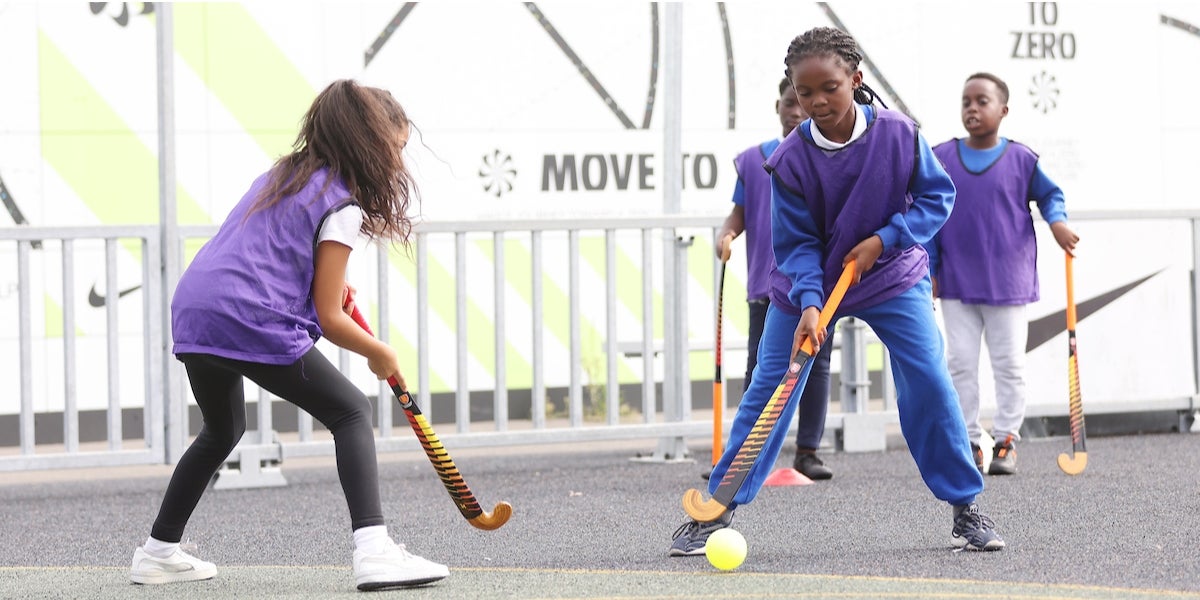Field hockey is a dynamic and exhilarating sport that requires a unique blend of skill, speed, and strategy. Aspiring athletes often wonder whether field hockey is a hard sport to play. In this article, we will delve into the intricacies of field hockey, exploring the challenges it presents and the rewards it offers to those who take up the game.

The Physical Demands
One of the first things to consider when assessing the difficulty of field hockey is its physical demands. Like many sports, field hockey requires athletes to be in top physical condition. Players must possess endurance to sustain their performance throughout the match, as well as speed and agility to maneuver on the field effectively. Additionally, the repetitive nature of certain movements, such as dribbling and passing, can place strain on the body, requiring athletes to maintain strength and flexibility to prevent injuries.
Technical Skills
Field hockey also demands a high level of technical skill. Players must master a range of techniques, including dribbling, passing, shooting, and defending. These skills require precision and finesse, as well as the ability to execute them under pressure during fast-paced gameplay. Learning these techniques takes time and dedication, making field hockey a challenging sport to master.
Tactical Understanding
In addition to physical and technical abilities, field hockey requires a strong tactical understanding of the game. Players must be able to anticipate their opponents’ movements, read the play, and make split-second decisions to outmaneuver the opposition. This strategic aspect adds another layer of complexity to the sport, as players must constantly adapt their tactics based on the evolving dynamics of the match.

Teamwork and Communication
Field hockey is a team sport, and success on the field often hinges on effective teamwork and communication. Players must work together seamlessly, supporting each other both on offense and defense. Effective communication is essential for coordinating plays, signaling for passes, and organizing defensive structures. Learning to communicate effectively with teammates can be challenging but ultimately rewarding, as it fosters camaraderie and collective achievement.
Mental Toughness
Beyond the physical and technical aspects, field hockey also demands mental toughness. The fast-paced nature of the game, combined with the pressure of competition, requires players to remain focused and composed under stress. Facing setbacks and adversity is inevitable in any sport, and field hockey is no exception. Developing resilience and mental fortitude is crucial for overcoming challenges and staying motivated to improve.
The Rewards of Playing Field Hockey
While field hockey presents its fair share of challenges, the rewards of playing the sport are abundant. For many athletes, the thrill of competition and the camaraderie of being part of a team are unparalleled experiences. Field hockey also offers numerous physical and mental health benefits, including improved cardiovascular fitness, enhanced coordination, and reduced stress levels.
Furthermore, the sense of accomplishment that comes from mastering new skills and achieving personal goals is incredibly fulfilling. Whether it’s executing a perfect reverse stick shot or making a crucial defensive stop, the satisfaction of seeing hard work pay off is deeply gratifying for players of all levels.
Conclusion
In conclusion, field hockey is undoubtedly a challenging sport to play, requiring a combination of physical, technical, tactical, and mental abilities. However, for those willing to embrace the challenge, the rewards are immeasurable. From the thrill of competition to the sense of camaraderie and personal growth, field hockey offers a rich and rewarding experience for athletes of all ages and abilities. So, is field hockey a hard sport to play? Yes, but the journey is well worth it.
More on Field Hockey:
Field Hockey Positions: A Comprehensive Guide for Players and Coaches
